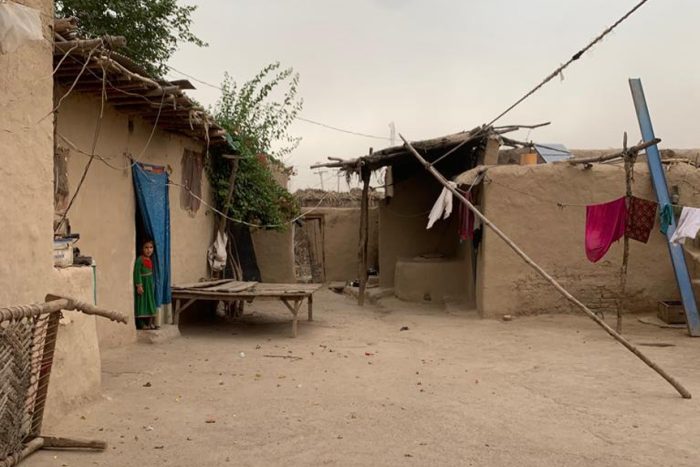In search of a better life – A migrant mother’s dream
In 1980, Reha’s family moved to Pakistan in search of safety and stability as conflict, uncertainty and poverty engulfed almost all of Afghanistan at the time. “The war in the country forced many Afghans like us to move to other countries in search of a secure environment and a better future. But the future was not very bright in Pakistan either. I for one, did not earn much and my meagre income did not serve the needs of my family but I tried my best,” shared Reha’s father.
Back in the 80s, Afghanistan was going through an extreme economic crisis which pushed its people deeper and deeper into poverty and to take desperate measures to make ends meet. Many people left the country, while others forced their children to engage in child labour and early child marriages. A large majority of young girls were wed off during this period. They never got the chance to pursue their education or their dreams and in many cases were most likely experiencing domestic violence, discrimination, abuse and suffered from psychological trauma.
Young and innocent Reha, was married off when she was only fourteen years old. Her family lived in extreme poverty even in Pakistan and the parents had to ease themselves of at least one child as soon as possible. “Because we were very poor and couldn’t afford to buy enough food for the entire family, my parents married me off at an early age. I was unable to attend school as a result. It was the most challenging time of my life. At just 14, having to take care of the in-laws and handle domestic chores was difficult and stressful. It took me a while to become more responsible and act as an adult. My husband and in-laws would beat me for the pettiest mistake,” remarked Reha, who is now thirty-two years old, a mother to nine children. Reha never stopped working and it has now been sixteen years since she has been working as a domestic house worker in Pakistan.
“I often blamed my misfortunes on not getting an education. Because I did not get the chance to go to school, I made sure my children did. I firmly stood against early childhood marriages. I supported my two elder daughters and insisted that my husband enrol them at a school. Initially he was hesitant, but after consistent persuasion he finally agreed to let them study at the community school. My eldest daughter completed Grade six and she is now studying at a madrassaⁱ. I want all my children to be educated and confident so that they do not have to suffer the way I did.”
Employed as a cleaner since a young age, which was labour intensive, and constantly being physically and mentally abused at home, Reha started suffering from low immunity and was eventually diagnosed with asthma. “I was unable to care for my children the way I wanted to.”
“I now live at Kababiyan Camp, which is basically in a slum area. Our four room, mud constructed house is too small to accommodate my large family of forty people. My children and grandchildren live with us in the same house. We do not have access to electricity, water supply, nearby schools or health care. I am still working as a maid and my husband works as a daily-wage labourer. We struggle to earn enough money to support our family’s needs.”
Never having heard of antenatal or postnatal care, Reha delivered all her nine children at home. The first time she heard of this was at a community-based awareness session held at their camp under ACT Alliance and Community World Service Asia’s Gender Justice Project that focused on raising awareness on gender-based concerns and essential rights among migrant Afghan communities in Pakistan. “The session was very informative for me. It was the first time I heard of antenatal and postnatal care. I was unaware of many child spacing methods or family planning before this.” The awareness-raising session, held at Kababyan Camp, focused on antenatal and postnatal care, importance of girls’ education, women empowerment and women health rights.
Reha also participated in similar community sessionsⁱⁱ that helped raise awareness on family planning, gender-based violence, domestic violence and early child marriages. “After attending these sessions, I stand up for the rights of my daughters and daughters-in-law and encourage them to speak up too. Women suffer at so many stages in life. They suffer physically and emotionally as pregnancy affects their physical and mental health. I encourage my son and daughter-in-law to adopt child spacing as the health of the child and mother are of grave importance for the family’s well-being.”
ⁱ An educational institution, particularly for Islamic religious instruction
ⁱⁱ Under the same project







